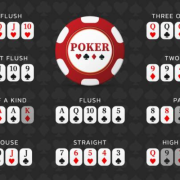Poker is not just a game of luck; it’s a game of skill, strategy, and psychological warfare. Texas Hold’em, in particular, is one of the most popular forms of poker played worldwide. If you want to improve your game and dominate the table, investing time in Texas poker training is essential. This article will guide you through effective strategies, tips, and resources to elevate your poker skills.
Understanding the Basics
Before diving into advanced strategies, it’s crucial to have a solid understanding of the fundamentals of Texas Hold’em. Familiarize yourself with the game’s rules, hand rankings, and betting structures. Knowing when to fold, call, or raise is vital to making informed decisions during gameplay.
Key Concepts to Master
- Position: Your position at the table significantly affects your strategy. Being in a late position gives you more information about your opponents’ actions, allowing you to make better decisions.
- Starting Hands: Understanding which hands to play is crucial. Strong starting hands like pocket aces (AA) or king-queen suited (KQs) should be played aggressively, while weaker hands may require a more cautious approach.
- Pot Odds: Familiarize yourself with the concept of pot odds, which helps you determine whether it’s worth calling a bet based on the size of the pot and the cost of your call. This mathematical approach can prevent you from making costly mistakes.
Texas Poker Training Techniques
To elevate your skills, consider implementing the following training techniques:
1. Practice Regularly
Consistent practice is the key to improvement. Play with friends or online to gain experience. Online platforms often have low-stakes tables, allowing you to hone your skills without risking significant amounts of money.
2. Study Hand History
Reviewing your past hands can provide valuable insights into your decision-making process. Analyze both winning and losing hands to identify patterns and areas for improvement. Understanding what went wrong or right can significantly enhance your gameplay.
3. Learn from the Pros
Watching professional poker players is an excellent way to learn advanced strategies. Pay attention to their betting patterns, how they manage their chips, and how they read their opponents. Many pros also stream their games online, providing real-time insights and explanations of their thought processes.
4. Join Poker Training Sites
Several websites offer structured اموزش پوکر تگزاس programs. These platforms provide tutorials, strategy guides, and video content from experienced players. Investing in a training site can accelerate your learning curve and provide you with a wealth of resources.
5. Participate in Poker Forums
Engaging with other players in online poker forums can help you gather diverse perspectives on various strategies. Discussing hands and scenarios with others can provide new insights and enhance your understanding of the game.
6. Focus on the Mental Game
Poker is as much about psychology as it is about strategy. Developing a strong mental game can give you a significant edge at the table. Techniques such as mindfulness and emotional regulation can help you remain calm and focused, even during high-stakes situations.
Advanced Strategies
Once you’re comfortable with the basics, consider integrating more advanced strategies into your game.
1. Bluffing Wisely
Bluffing is a critical component of poker, but it must be executed thoughtfully. Successful bluffing involves understanding your opponents’ tendencies and knowing when they’re likely to fold. Avoid overusing this tactic; if you bluff too often, your opponents will catch on.
2. Adjusting Your Strategy
Every table is different, and adjusting your strategy based on the players you face is essential. If you notice that your opponents are overly aggressive, it may be wise to adopt a more conservative approach. Conversely, if they are playing too passively, consider increasing your aggression.
3. Reading Your Opponents
Developing the ability to read your opponents can provide invaluable information during a hand. Look for tells—subtle behavioral changes that indicate strength or weakness. These tells can include changes in betting patterns, body language, or facial expressions.
Conclusion
Improving your Texas Hold’em skills takes time, dedication, and the right training. By investing in Texas poker training and practicing regularly, you can enhance your gameplay and gain a competitive edge at the table. Remember to focus on mastering the basics, studying hand histories, learning from professionals, and developing your mental game. With consistent effort and the right strategies, you’ll be well on your way to dominating the poker tables.




















Comments